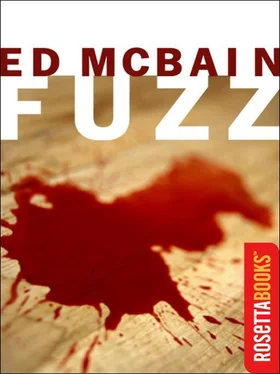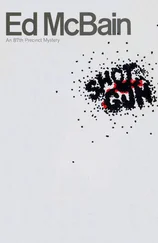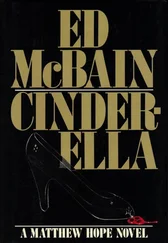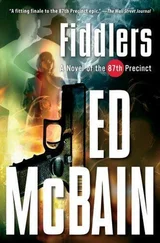Ed Mcbain - Fuzz
Здесь есть возможность читать онлайн «Ed Mcbain - Fuzz» весь текст электронной книги совершенно бесплатно (целиком полную версию без сокращений). В некоторых случаях можно слушать аудио, скачать через торрент в формате fb2 и присутствует краткое содержание. Жанр: Полицейский детектив, на английском языке. Описание произведения, (предисловие) а так же отзывы посетителей доступны на портале библиотеки ЛибКат.
- Название:Fuzz
- Автор:
- Жанр:
- Год:неизвестен
- ISBN:нет данных
- Рейтинг книги:3 / 5. Голосов: 1
-
Избранное:Добавить в избранное
- Отзывы:
-
Ваша оценка:
- 60
- 1
- 2
- 3
- 4
- 5
Fuzz: краткое содержание, описание и аннотация
Предлагаем к чтению аннотацию, описание, краткое содержание или предисловие (зависит от того, что написал сам автор книги «Fuzz»). Если вы не нашли необходимую информацию о книге — напишите в комментариях, мы постараемся отыскать её.
Fuzz — читать онлайн бесплатно полную книгу (весь текст) целиком
Ниже представлен текст книги, разбитый по страницам. Система сохранения места последней прочитанной страницы, позволяет с удобством читать онлайн бесплатно книгу «Fuzz», без необходимости каждый раз заново искать на чём Вы остановились. Поставьте закладку, и сможете в любой момент перейти на страницу, на которой закончили чтение.
Интервал:
Закладка:
“I understand.”
“And if you decide to exercise that right but do not have the funds with which to hire counsel, you are entitled to have a lawyer appointed without cost, to consult with him before or during questioning. Is that clear?”
“Yes.”
“You understand all of your rights as I have just explained them to you?”
“I do.”
“Are you willing to answer questions without the presence of an attorney?”
“Gee, I don’t know,” the suspect said. “Should I?”
Willis and Brown looked at each other. They had thus far played Miranda-Escobedo by the book, warning the suspect of his privilege against self-incrimination, and warning him of his right to counsel. They had done so in explicit language, and not by merely making references to the Fifth Amendment. They had also made certain that the suspect understood his rights before asking him whether or not he wished to waive them. The green flyer issued by Captain Frick had warned that it was not sufficient for an officer simply to give the warnings and then proceed with an interrogation. It was necessary for the prisoner to say he understood, and that he was willing to answer questions without counsel. Only then would the court find that he had waived his constitutional rights.
In addition, however, the flyer had warned all police officers to exercise great care in avoiding language which could later be used by defense attorneys to charge that the officer had “threatened, tricked, or cajoled” the defendant into waiving. The officer was specifically cautioned against advising the suspect not to bother with a lawyer, or even implying that he’d be better off without a lawyer. He was, in short, supposed to inform the defendant of his privilege against self-incrimination and his right to counsel, period. Both Willis and Brown knew that they could not answer the suspect’s question. If either of the two had advised him to answer questions without an attorney present, any confession they thereafter took would be inadmissible in court. If, on the other hand, they advised him not to answer questions, or advised him to consult with an attorney, their chances of getting a confession would be substantially lessened.
So Willis said, “I’ve explained your rights, and it would be improper for me to give you any advice. The decision is yours.”
“Gee, I don’t know,” the man said.
“Well, think it over,” Willis said.
The young man thought it over. Neither Willis nor Brown said a word. They knew that if their suspect refused to answer questions, that was it, the questioning would have to stop then and there. They also knew that if he began answering questions and suddenly decided he didn’t want to go on with the interrogation, they would have to stop immediately, no matter what language he used to express his wishes —”I claim my rights,” or “I don’t want to say nothing else,” or “I demand a mouthpiece.”
So they waited.
“I got nothing to hide,” the young man said at last.
“Are you willing to answer questions without the presence of an attorney?” Willis asked again.
“I am.”
“What’s your name?” Willis said.
“Anthony La Bresca.”
“Where do you live, Anthony?”
“In Riverhead.”
“Where in Riverhead, Anthony?” Brown said.
Both detectives had automatically fallen into the first-name basis of interrogation that violated only human dignity and not human rights, having nothing whatever to do with Miranda-Escobedo, but having everything in the world to do with the psychological unsettling of a prisoner. Call a man by his first name without allowing him the return courtesy and:
(a) You immediately make him a subordinate, and
(b) You instantly rob the familiarity of any friendly connotation, charging its use with menace instead.
“Where in Riverhead, Anthony?” Willis said.
“1812 Johnson.”
“Live alone?”
“No, with my mother.”
“Father dead?”
“They’re separated.”
“How old are you, Anthony?”
“Twenty-six.”
“What do you do for a living?”
“I’m unemployed at the moment.”
“What do you normally do?”
“I’m a construction worker.”
“When’s the last time you worked?”
“I was laid off last month.”
“Why?”
“We completed the job.”
“Haven’t worked since?”
“I’ve been looking for work.”
“But didn’t have any luck, right?”
“That’s right.”
“Tell us about the lunch pail.”
“What about it?”
“Well, what’s in it, first of all?”
“Lunch, I guess,” La Bresca said.
“Lunch, huh?”
“Isn’t that what’s usually in lunch pails?”
“We’re asking you, Anthony.”
“Yeah, lunch,” La Bresca said.
“Did you call this squadroom yesterday?” Brown asked.
“No.”
“How’d you know where that lunch pail would be?”
“I was told it would be there.”
“Who told you?”
“This guy I met.”
“What guy?”
“At the employment agency.”
“Go on,” Willis said, “let’s hear it.”
“I was waiting on line outside this employment agency on Ainsley, they handle a lot of construction jobs, you know, and that’s where I got my last job from, so that’s where I went back today. And this guy is standing on line with me, and all of a sudden he snaps his fingers and says, ‘Jesus, I left my lunch in the park.’ So I didn’t say nothing, so he looks at me and says, ‘How do you like that, I left my lunch on a park bench.’ So I said that’s a shame, and all, I sympathized with him, you know. What the hell, poor guy left his lunch on a park bench.”
“So then what?”
“So he tells me he would run back into the park to get it, except he has a bum leg. So he asks me if I’d go get it for him.”
“So naturally you said yes,” Brown said. “A strange guy asks you to walk all the way from Ainsley Avenue over to Grover and into the park to pick up his lunch pail, so naturally you said yes.”
“No, naturally I said no,” La Bresca said.
“Then what were you doing in the park?”
“Well, we got to talking a little, and he explained how he got his leg hurt in World War II fighting against the Germans, picked up shrapnel from a mortar explosion, he had a pretty rough deal, you know?”
“So naturally you decided to go for the lunch pail after all.”
“No, naturally I still didn’t decide to do nothing.”
“So how did you finally end up in the park?”
“That’s what I’ve been trying to tell you.”
“You took pity on this man, right? Because he had a bum leg, and because it was so cold outside, right?” Willis said.
“Well, yes and no.”
“You didn’t want him to have to walk all the way to the park, right?” Brown said.
“Well, yes and no. I mean, the guy was a stranger, why the hell should I care if he walked to the park or not?”
“Look, Anthony,” Willis said, beginning to lose his temper, and trying to control himself, reminding himself that it was exceptionally difficult to interrogate suspects these days of Miranda-Escobedo when a man could simply refuse to answer at any given moment, Sorry, boys, no more questions, just shut your dear little flatfoot mouths or run the risk of blowing your case. “Look, Anthony,” he said more gently, “we’re only trying to find out how you happened to walk to the park and go directly to the third bench to pick up that lunch pail.
“I know,” La Bresca said.
“You met a disabled war veteran, right?”
“Right.”
“And he told you he left his lunch pail in the park.”
Читать дальшеИнтервал:
Закладка:
Похожие книги на «Fuzz»
Представляем Вашему вниманию похожие книги на «Fuzz» списком для выбора. Мы отобрали схожую по названию и смыслу литературу в надежде предоставить читателям больше вариантов отыскать новые, интересные, ещё непрочитанные произведения.
Обсуждение, отзывы о книге «Fuzz» и просто собственные мнения читателей. Оставьте ваши комментарии, напишите, что Вы думаете о произведении, его смысле или главных героях. Укажите что конкретно понравилось, а что нет, и почему Вы так считаете.












